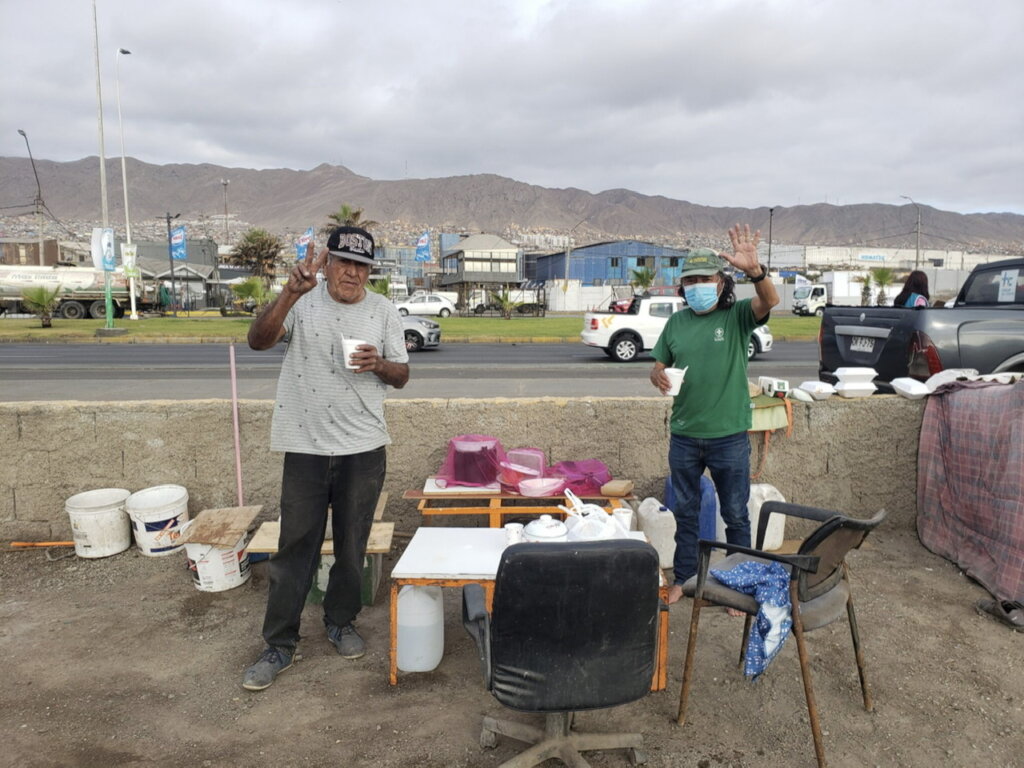By Matias Radunz | Project Support
Every week our volunteers make social routes in the different sectors of the commune, in search of the most excluded. A very volatile population and, therefore, difficult to locate. They explain that "it seems" that there are always the same people, but it is not so: the face of the most vulnerable is changing due to the explosive phenomenon of migration, which has increased the presence of children, adolescents and mothers in street situations in the north of Chile.
Now the volunteers must provide quick help: delivering food, blankets, medical care to migrant families, in transit and in tents in the center, although there are also others who take different routes, settling in parks and streets on the periphery.
"The children arrive with symptoms of malnutrition, dog bites, hypothermia, sunstroke or dehydration. Many no longer speak, look at the ground, don't want to play, distrust everyone," say the volunteers, shocked.
The data from the Casen 2020 Survey are revealing. Between 2017 and 2020, poverty in Chile affected migrants more, reaching 17% of this population in 2020, however, among them there are three groups even more punished: women, children and adolescents; and those who live in the northern part of the country.
For this reason, we consider three essential axes to address this unfortunate reality: the need for shelters for people who have nowhere to stay, the regularization of their papers and, most difficult, a definitive solution, which necessarily involves housing.
Now, in the emergency and with the health crisis caused by COVID-19 at a lower intensity, our volunteers are reorganizing throughout Chile to reactivate the Street Routes that were suspended or very limited due to the pandemic. We know that these are palliative initiatives of the problem, but necessary, sometimes key to avoid a death due to hypothermia or other extreme reasons.
And they are also central because they raise awareness and mobilize the organized civil society to show the invisible, the ghosts of the street, who have multiplied in this complex time with the aggravating factor that they are foreigners. And that, in the eyes of many, amplifies the stigma that people in street situations carry.
Project reports on GlobalGiving are posted directly to globalgiving.org by Project Leaders as they are completed, generally every 3-4 months. To protect the integrity of these documents, GlobalGiving does not alter them; therefore you may find some language or formatting issues.
If you donate to this project or have donated to this project, you can receive an email when this project posts a report. You can also subscribe for reports without donating.
Support this important cause by creating a personalized fundraising page.
Start a Fundraiser